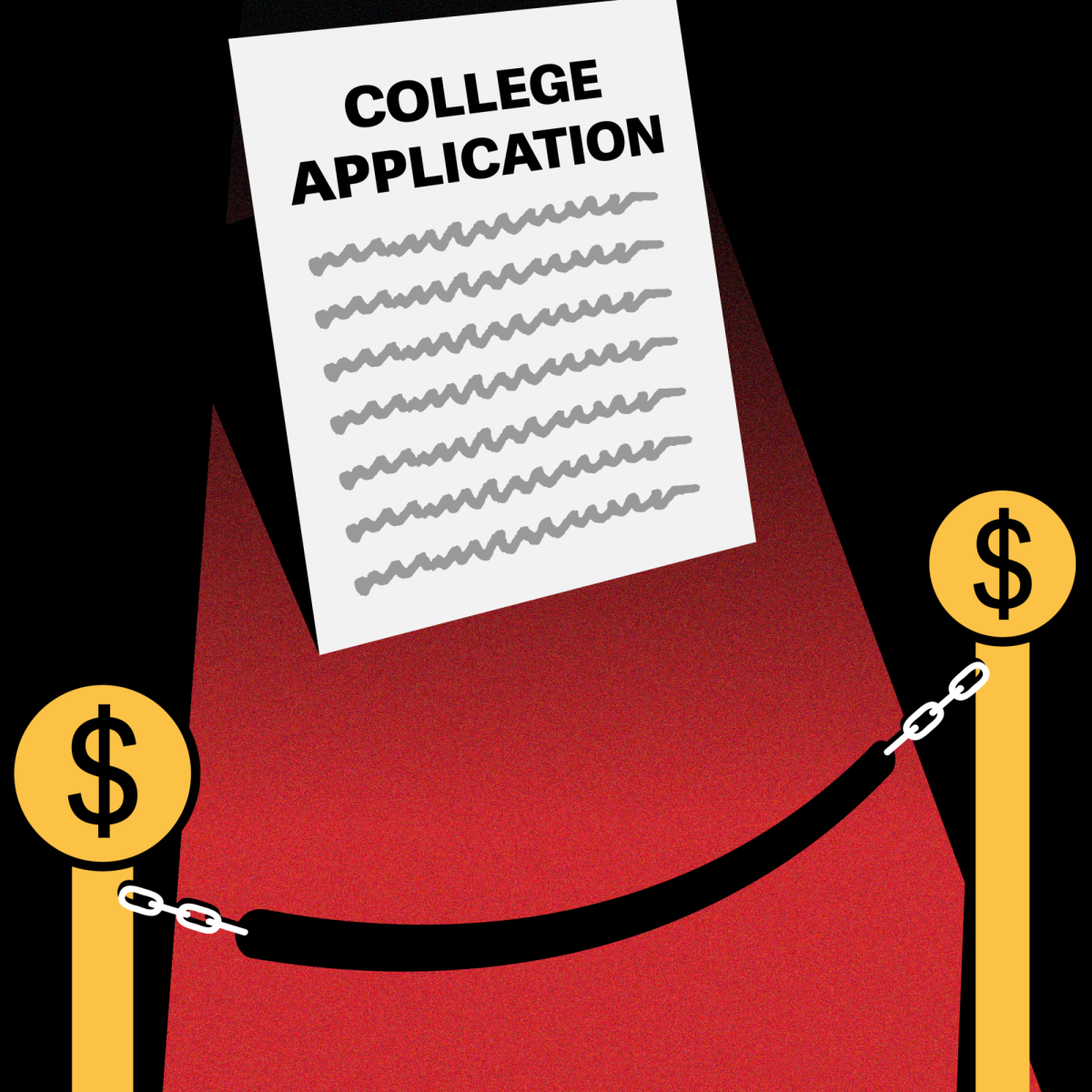Applications submitted for undergraduate, graduate and doctorate programs have an application fee associated with applying. The fee is used to process the application, verifying and overseeing all of the student’s paperwork.
The issue with application fees comes when a student who demonstrates financial need cannot obtain a fee waiver, making it impossible to apply to a school. Applying to one school at $80 may sound like a little, but when you apply to colleges, according to the Common App, the average number of applications completed is 5.7. This ends up totaling over $400, which is simply unattainable for most young adults.
When people from low-income families who are primarily African American or Hispanic cannot afford these application fees, it causes the education divide to become even stronger. Many people of color already face barriers to getting into higher education, including being underprepared for higher education due to limited access to quality education, lack of support from their university due to systemic conditions, racial discrimination, and overall cultural stereotypes.
Application fees increase the college attainment gap between white and Black students — 40% of white students will graduate from college and only 19% of Black students will. In order to close this gap, the first step would be lowering, if not completely getting rid of, application fees. It is simply inequitable across communities to expect every young adult wanting a chance to get higher education to afford five or more application fees.
The first step is waiving all application fees, but it can’t stop there. There are also so many hidden fees that many first-generation college students and low-income students don’t anticipate. Some of these include taking the SAT/ACT or GRE and then accessing your scores on those exams. These all add up quickly which can disproportionately affect low-income students and can continue the toxic cycle of poverty.
One reason for getting rid of unnecessary fees is that making education more accessible causes more low-income students to become educated and go into higher-income jobs, which in turn means paying higher taxes into the economy. Other countries like Norway or Germany have no fees and free tuition. To keep the U.S. as educated as those around us and keep us as a global competitor in education, lowering the cost of applications is important.
An idea to offset the costs of the thousands of applications universities and colleges receive is to look for corporate sponsorships, accept philanthropy acts, and ask alumni to donate. These options cover costs as opposed to placing burdens like that onto those of new prospective students.
All in all, there are unfair barriers in place for low-income and first-generation students that need to be disintegrated for education access to be equitable. Everyone deserves a fair chance at achieving higher education and financial status should never be a reason for a motivated person to be turned down from a brighter future.




MuChao • Feb 4, 2025 at 7:36 am
*At the very least*, any and every NC citizen should have ALL application fees waived for any UNC-system school.
Next, it’s time to start lowering the cost of entry. We can start by eliminating multiple needless, grossly over-paid, upper administration posts. Next, remove Athletics and replace with club sports. There’s no reason that a full-time student should be paying >$1000/year to subsidize financial losses incurred by Athletics. *At the very least* students should be able to opt-out of the Athletics fee like they can the rental text program.
Big picture, we could have universal higher education, it’s easily affordable. Unfortunately, a significant segment of this country’s population has been systematically brainwashed for 75 years through right-wing propaganda to think: “ThAt’S cOMmUniSM!” They’d rather support right-wing kleptocratic oligarchs more concerned about giving tax breaks to poor, destitute multi-billionaires than maintaining the foundations of a functioning, healthy society.
Susie • Feb 4, 2025 at 7:28 am
Someone has to read ALL the applications a school receives. Given the “common app” where all students have to do to send an application is to click, there must be some gateway to make sure only serious applicants apply. You act like money doesn’t exist to be earned. Walk dogs, mow lawns, babysit, etc.! I earned more than $400 in high school tutoring. If you want to apply to college enough, you’ll figure out how to earn the money to apply.